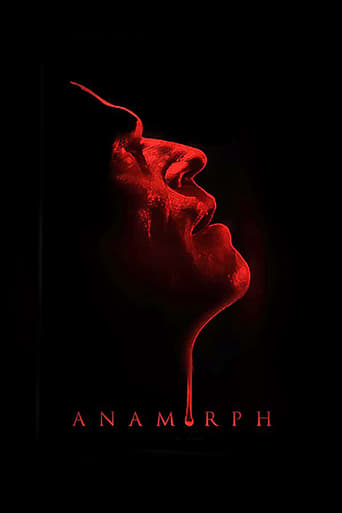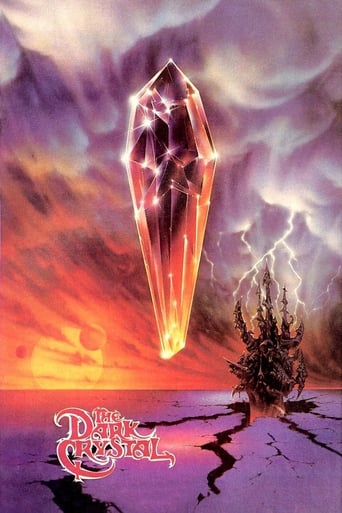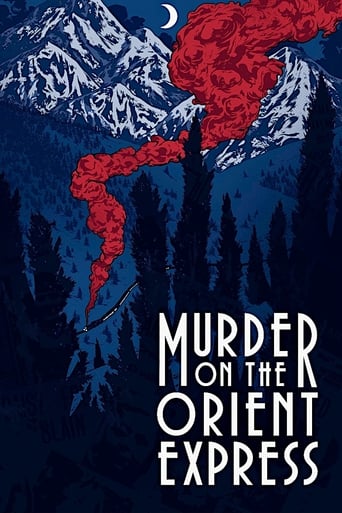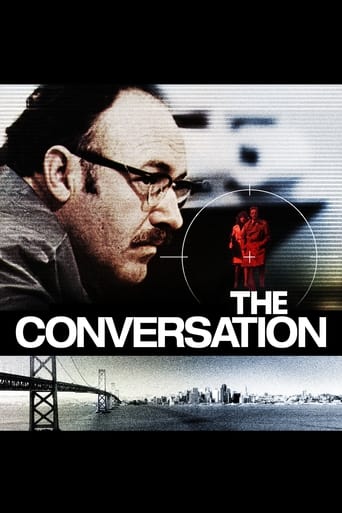


The Pervert's Guide to Cinema
A hilarious introduction, using as examples some of the best films ever made, to some of Slovenian philosopher and psychoanalyst Slavoj Žižek's most exciting ideas on personal subjectivity, fantasy and reality, desire and sexuality.
-
- Cast:
- Slavoj Žižek , Alfred Hitchcock


Similar titles

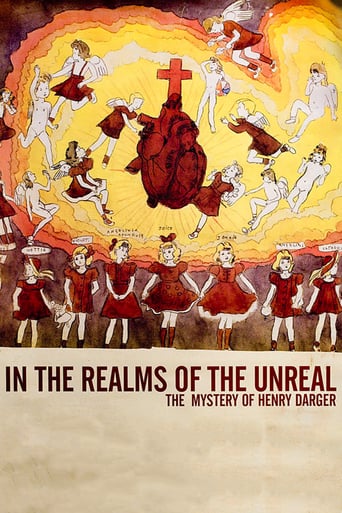


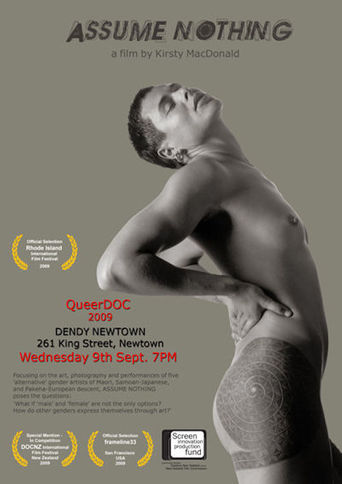
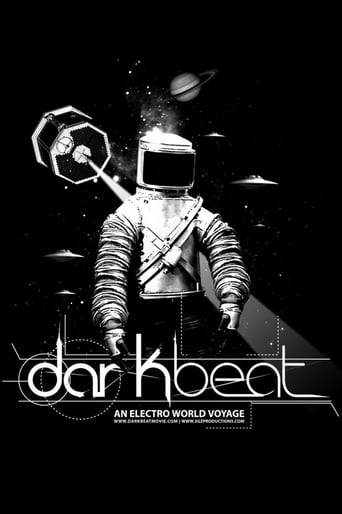



Reviews
the audience applauded
Save your money for something good and enjoyable
Don't listen to the negative reviews
Instead, you get a movie that's enjoyable enough, but leaves you feeling like it could have been much, much more.
"Cinema is the ultimate pervert art. It doesn't give you what you desire; it tells you how to desire."So begins "The Pervert's Guide to Cinema," in which Slovenian philosopher and psychoanalyst Slavoj Zizek applies his Freudian/Lacanian brain-scalpel to world cinema. This film in three parts is the second feature documentary directed by Sophie Fiennes (yes, sister of Ralph and Joseph), and it is a notable accomplishment, clocking in at 2 1/2 hours of talk from one man and yet remaining humorous and engaging throughout. In essence, it is an extended film lecture, and one of the best you may ever get. Over the course of the film, Zizek guides us through a catalog of obsession and desire in film history. He touches on more than 40 films and, in particular, spends a great deal of time with Hitchcock, Lynch, Chaplin, Tarkovsky, the Marx Brothers, and Eisenstein. But he also takes a close look at "Persona," "The Conversation," "Three Colors: Blue," "Dogville," "Fight Club," and "The Exorcist." Thematically, Zizek's inquiry into cinema ranges from thoughts on the death drive to the "coordinates of desire," and from Gnosticism to "partial objects.""The Pervert's Guide" will be a slightly better experience if you've taken a few minutes to bone up on your basic Freudian terminology. However, even if you're not steeped in psychoanalytic theory, Zizek's dynamic and hilarious personality carries the film forward with such gusto that you aren't likely to balk at the specialized lingo. The film frequently cuts from movie clips to images of Zizek *inside* the movie he is talking about--that is, in the original locations and sets. The transitions in these sequences sustain such tension and humor that the trick never gets old. And Zizek himself is constantly making us laugh, either from bizarre little jokes or from his enthusiastic insistence on, for example, a bold Oedipal interpretation of "The Birds." And this go-ahead-and-laugh attitude, on the parts of both Fiennes and Zizek, is essential to the gonzo character of the film. It is the spoonful of sugar that helps us digest Zizek's weird medicine. After all, don't we all have a sense that, past a certain point, psychology theorists are just pulling our legs?
Already his first claim, that desires are always artificial, is totally fallacious.When a Jehovah Witness reject gets his own documentary on movies – or anything for that matter - it's time for anyone to get their own. Although far, far more intelligent than, say, Paris Hilton, Zizek's mouth spews just as much baloney as hers, just a different kind. He combines the worst from both his professional worlds: psychoanalysis and philosophy. Both fields are notorious for conveniently offering the expert b*lls***osopher plenty of leeway to create unprovable theories, to rant without a beginning or end, and to connect concepts almost randomly, in the process misusing the English language by creating a semantic jumble only a mother can love. Example: there are three main Marx brothers hence what a "great" idea to connect them with three levels of human consciousness, the id, the ego and the super-ego. I'm kind of surprised he didn't play a clip from "Snowhite" and make an analogy between the seven dwarfs and the seven levels of Gahannah (Moslem hell). It's like the premise of Schumacher's "The Number 23": play with numbers long enough, and you can come up with any kind of cockamamie theory you want, even linking Ancient Greeks with Princess Di's death.However, there is an entertainment element to TPGTC: watching a raving lunatic sweat like a hog while uttering delusional chants masked as intellectual analysis can be quite a lot of fun. Why watch "Cuckoo's Nest" or any other madhouse drama when you can have Zizek for more than 2 hours? It's like watching an amusing train wreck. Admittedly, he is almost funny on one or two occasions.I have always been mystified by people who desperately try to elevate movie-making into an exalted intellectual social science. Giving idiotic movies like "Birds" this much thought, hence this much credit, probably has its fat creator laughing in his grave. The raw truth is that the vast majority of movies have zero intellectual value, and the few ones that do have some intelligence don't require a shrink-turned-philosopher to draw one a map to understand them – unless one is a complete idiot. Zizek sees layers and layers of meaning in the most banal movies. Hallucinogenic drugs must be rather popular and cheap in Slovenia these days...When Zizek showed the bathtub hole in the "Psycho" shower scene, I thought he was going to say something about galactic black holes; how they drain the life out of stars just as the bathtub hole sucks in Janet Leigh's blood. Or perhaps he could have said how the hole represents Leigh's vagina, with the blood flowing into it instead of out, this representing some kind of "clever (Zizekian) irony". Speaking of which, the real irony is that if Hitchcock had really put that much thought into every scene his movies wouldn't have been the illogical, far-fetched crap that they often are. The point of these bathtub hole analogies was to illustrate just how easy it is to improvise about "hidden, deep meanings". And when you add Zizek's fanciful terminology from philosophy and psychology, layering these terms on top of these analogies like wedding cake decorations, you get a rambling jumble that can instantly impress the uneducated - i.e. the easily impressionable and the gullible.Zizek utters a number of unintentionally bits of poppycock, one of the most absurd ideas being when he associates Anthony Perkins's cleaning of the bloodied bathroom with "the satisfaction of work, of a job well done". Don't laugh... Neither Hitchcock nor the writer of "Psycho" could have ever even vaguely entertained this notion that Perkins might be enjoying a job well done - the cleaning of a blood-stained toilet - while they were conceiving/directing that scene. Talk about putting words into one's (dead) mouth, but in the context of misinterpreting what the director had to "say".I like Zizek's initial thoughts on Tarkovsky's terrific "Solaris", but then he has to ruin a rare good impression by dragging in "anti-feminism" and other nonsense into his theory.Zizek's attitude towards logic is that of a dog toward its plastic bone. "I just want to play with it all day!" Logic has its rules, and is not supposed to be raped - at least not publicly - by the likes of him. He seems to regard logic, proof, common-sense, and reason as enemies or mere throwaway toys; concepts to be either avoided, twisted to fit the end-goal, or simply annihilated. Zizek is the LSD-tripped hippie, and all his favorite movies are his own personal "2001"s.The fact that Zizek over-focuses on two of the most overrated directors - and ones whose films often LACK intelligence, if anything - such as Hitchcock and Lynch, only further diminishes his already low credibility. I was surprised De Palma didn't feature more prominently; that's another lame director who writes inept scripts. Zizek has a field day with Lynch's incomprehensible "Lost Highway". There are just as many interpretations of that movie as there are people who watched it.Zizek's comment that the viewer readily accepts von Trier's laughable, "ground-breaking" physical set-up in "Dogville" made me snicker. However, Zizek doesn't only make up stuff as he goes along, he also indulges heavily in the "bleedin' obvious". Like all "social scientists" (an oxymoron), he wraps his very trite "observations" into articulate (if full of spitting) and sometimes complex blankets of language. After all, sociology functions in precisely the same way: it makes us believe we are hearing something new when in fact it's what we already all know, but told in an eloquent way - which fools the more unobservant listener.I was half-expecting for men in white suits to suddenly appear out of nowhere and strap him up in a loonie-suit...Slavoj Zizek: soon as a stalker in a kid's park near you.For depressed, frustrated, confused film students only.
Slavoj Zizek sure is a strange man. philosopher and psychoanalyst does something that very few others, for some unknown reason, have done, and that's taking movies that we know and love, and putting them on the couch for analysis. This is a startlingly simple yet brilliant concept. I am not sure why this hasn't been done before. Zizek takes movies that are obvious for analyzing, eg, Blue Velvet, Psycho, and some that are not so.. eg The Conversation and The Birds. Although Zizek is hard to understand sometimes because of his theeeck accent, the images come fast and furious, so that's fun, also Zizek takes great pains to recreate locations of scenes, which also adds to the entertainment value of this otherwise talky film. .
If you've ever been harassed on the Underground by a Christian who says, "Jesus is the answer. What's the question?", then perhaps you should thank God if you've never met a Lacanian. Slavoj Zizek, the most evangelical of Lacanians, would surely exchange the word "Jesus" in that statement for "Lacan/Hegel".Zizek's star burns brightly at the moment, no doubt because we generally view films and pop culture purely as entertainment for our consumption. So it seems impressive when someone - anyone - comes along and says, "Hang on, films may say something about ourselves."The ideas Zizek expounds in this film are "true" purely because he says so. For example, Zizek explains that three Marx Bros are the ego, superego and id (God knows what happened to Zeppo, or Gummo perhaps they're the sinthome...or is that movies themselves?). This is simply what they are. In Zizek's output, culture is not there to be investigated but merely to be held as an example of his ideology. People may object that he certainly has something to say - but how different is what he says from the Christian attributing everything to God's will?What's wrong with taking examples, from films or anywhere, to illustrate theory? Well, nothing at all. As Zizek seems to believe, they may even serve as a proof. However, it is merely cant and propaganda when these examples are isolated from their context. Without context, you can say and prove anything you want. For Zizek, Lacan is the answer so he goes and makes an example of it. Everything but everything resembles the teachings of the Master and culture is there to bear this out, to serve this ideology. For instance, Zizek's exemplar of the fantasy position of the voyeur is taken from a scene in Vertigo when Jimmy Stewart spies on Kim Novak in a flower shop. But, in the context of the film, this is not a voyeur's fantasy position at all. Stewart has been deliberately led there by Novak. This presentation of examples isolated from their context continues throughout Zizek's two hour and a half cinematic sermon.His analysis of the "baby wants to f---" scene in Blue Velvet is laughable. Touching lightly on what he appears to consider to be the horrific (to the masculine) truth of "feminine jouissance", Zizek says that Isabella Rossilini's character not only demands her degradation but is, unconsciously, in charge of the situation. This is an example of her "jouissance". Well ... possibly. But - sorry to be prosaic - where is the evidence for this? In the film, she partially undergoes her humiliations because Hopper has kidnapped her son. Zizek may object that she also evidently enjoys rough sex with Kyle MacLachalan. But this may be due to any number of things. Isn't that the point of so-called feminine "jouissance"? According to Lacan, feminine jouissance, unlike phallic jouissance, cannot be articulated, it is beyond the phallic capture and castration of language. If this is right, then no example can be made of it. It also means that the entire concept is non-sensical and entirely mystical. It can only be designated by dogmatists such as Zizek: "There's feminine jouissance for you! Why is this feminine jouissance? Because I say so." What example can really be garnered from these films? Only Zizek's psychology. Why does he keep inserting himself into his favourite films, even to the point that, when in a boat on Botega Bay, he says he wants to f--- Rod Steiger too? Is this not the wish-fulfilment of someone who spends his life critiquing films? As the saying goes, Freud would have a field day with The Pervert's Guide to the Cinema - but with Zizek himself, nobody else.Zizek's theory that films show us how we desire may be right on the face of it, but these films cannot be strict universal examples of psychoanalytical laws. This film illustrates how Zizek desires and only extremely vaguely - as to be almost useless - how the rest of us desire. For, as any psychoanalyst knows, how we desire and what we desire cannot be fully separated - and cannot be easily universalised, if at all. Zizek's love of making everything an example of Lacan's Answer bears this out: how do we desire? like this, this is how I do it. Problem is, in Zizek's desire, everything and everyone else is rationalised into his desire. But Zizek is a Leninist and they certainly don't like letting the "subject" speak for itself.The Pervert's Guide to the Cinema is a summation Zizek's love of dogma and is entirely unphilosophical even if it remains very political (what dogma isn't?). Zizek has never questioned exactly what his motives might be when embarking on an analysis, what he is trying to discover, because the terms of his exploration, and therefore his ethics in doing so, are never put into question.Zizek is extremely prolific but all his books and this film say the same thing. He's a kind of Henry Ford of cultural theory: mass-production and any colour as long as it's black. He is perfect for today's highly consumerist society: supposedly critical while giving people the same c-ap over and over and pretending that it is something different. This is popular because people largely prefer readymade answers to their problems - which capitalism always claims to provide - rather than investigating things with any serious consideration at all. Which is kind of like being brain dead. For me, Zizek's third Matrix pill is a suicide capsule.PS: I loved Zizek's solemn remark - presented as a revelation about cinema and humanity - that music in films can greatly affect people's sympathies. Did this only occur to Zizek after he watched Jaws?



